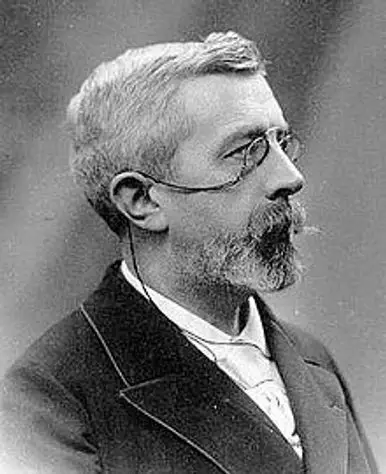
Paul Taffanel (1844 – 1908)
Paul Taffanel was a pioneering French flutist, conductor, and composer, widely regarded as the founder of the modern French school of flute playing.
Early Life and Musical Education
Claude-Paul Taffanel was born on September 16, 1844, in Bordeaux, France. He is often hailed as the father of the modern French school of flute playing. His musical journey began under the guidance of his father, who was also a musician. At the age of nine, Taffanel was admitted to the Paris Conservatoire, where he studied flute with Louis Dorus, graduating with a premier prix (first prize) in 1860.
Career Achievements
Taffanel’s career as a flutist and conductor was marked by numerous milestones that significantly shaped the classical music scene in Paris during the late 19th and early 20th centuries. He became the principal flutist at the Paris Opéra and later at the Société des Concerts du Conservatoire. His virtuosity on the flute combined with his conducting skills earned him a prominent place in Parisian musical life. Taffanel also founded the Société de musique de chambre pour instruments à vent (Society of Chamber Music for Wind Instruments) in 1879, which revived interest in wind ensemble music from the Classical era.
Late Years
Taffanel suffered from a physical breakdown in 1901, which affected his ability to perform. Despite this setback, he remained active in the musical community, continuing to teach and influence the flute world. His legacy is carried on through his many students who went on to become prominent figures in the world of flute music.
Contributions to Flute Pedagogy
Paul Taffanel’s greatest legacy lies in his pedagogical work. He served as a professor at the Paris Conservatoire from 1893 until his death in 1908. During this time, he revised the flute teaching method, emphasizing a more expressive style of playing that utilized a broader range of dynamics and vibrato techniques, which were not widely accepted in flute performance before him. His teachings formed the basis of what would become the French School of flute playing.
Compositions and Arrangements
Taffanel was not only a performer and educator but also a composer and arranger. He wrote several works for the flute, including fantasies on themes from operas, which are still popular among flutists today. His wind quintet compositions also remain staples in the chamber music repertoire.
Some of his most notable works include:
- Andante Pastoral et Scherzettino: A piece celebrated for its lyrical and charming character, often performed in flute recitals.
- Grande Fantaisie sur Mignon: This fantasy on themes from Thomas’s opera “Mignon” showcases Taffanel’s ability to weave complex operatic themes into virtuosic instrumental music.
- Fantaisie sur le Freischütz: Based on themes from Weber’s opera, this piece highlights Taffanel’s flair for dramatic and technically challenging arrangements.
- Wind Quintet in G minor: A chamber piece that remains a significant part of the woodwind quintet repertoire, showcasing his mastery in handling ensemble textures and colors.
Taffanel also made significant contributions through his cadenzas for Mozart’s Flute Concertos and his educational works, most notably the “17 Grands exercices journaliers de mécanisme,” co-authored with Philippe Gaubert, which remains a fundamental study material for flutists today.
His works not only enriched the flute repertoire but also cemented his reputation as a key figure in developing modern flute techniques and teaching methodologies. Taffanel’s influence persists in the teaching and performance of flute music globally.
Impact on Flute Music
Taffanel championed the inclusion of the flute as a solo instrument in the symphony orchestra and recital hall, elevating its status from merely an orchestral or ensemble instrument to a solo instrument capable of great expressivity and technical prowess.
Through his performances, teachings, and compositions, Paul Taffanel irrevocably changed the landscape of flute playing, ensuring his legacy would endure through generations of flutists. His work not only elevated the technical standards of flute playing but also enriched its expressive capabilities, making him one of the most influential figures in the history of the instrument.
Birthday of Paul Taffanel

